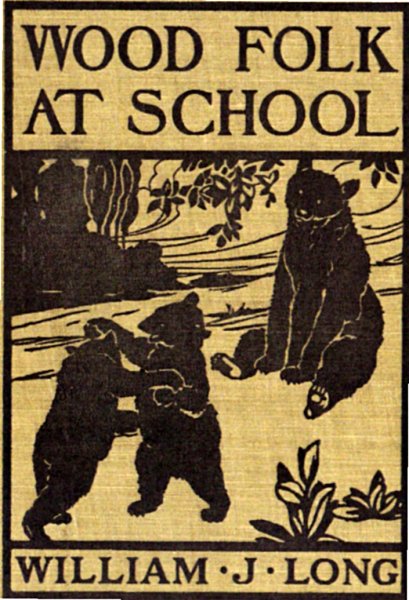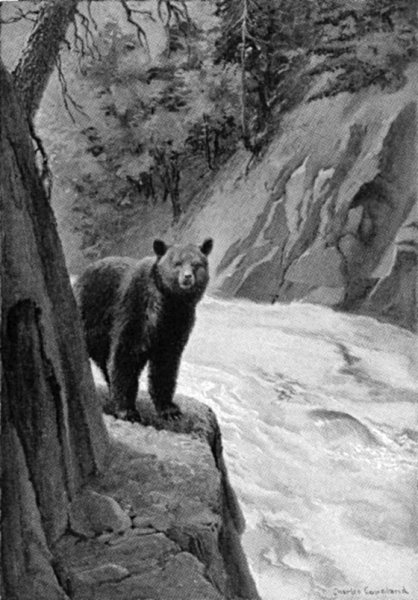
Wood Folk at School

WOOD FOLK AT SCHOOL
BY
WILLIAM J. LONG
WOOD FOLK SERIES
BOOK FOUR
GINN & COMPANY
BOSTON · NEW YORK · CHICAGO · LONDON
Entered at Stationers' Hall
COPYRIGHT, 1902, 1903
by WILLIAM J. LONG
ALL RIGHTS RESERVED
The Athenæum Press
GINN & COMPANY · CAMBRIDGE · MASSACHUSETTS
PREFACE
It may surprise many, whose knowledge of wild animals is gained fromrare, fleeting glimpses of frightened hoof or wing in the woods, toconsider that there can be such a thing as a school for the Wood Folk;or that instruction has any place in the life of the wild things.Nevertheless it is probably true that education among the higher orderof animals has its distinct place and value. Their knowledge, howeversimple, is still the result of three factors: instinct, training, andexperience. Instinct only begins the work; the mother’s trainingdevelops and supplements the instinct; and contact with the world, withits sudden dangers and unknown forces, finishes the process.
For many years the writer has been watching animals and recording hisobservations with the idea of determining, if possible, which of thesethree is the governing factor in the animal’s life. Some of the resultsof this study were published last year in a book called “School of theWoods,” which consisted of certain studies of animals from life, andcertain theories in the form of essays to account for what the writer’seyes had seen and his own ears heard in the great wilderness among theanimals.
[vi]A school reader is no place for theories; therefore that part of thebook is not given here. The animal studies alone are reproduced inanswer to the requests from many teachers that these be added to theWood Folk books. From these the reader can form his own conclusions asto the relative importance of instinct and training, if he will. Butthere is another and a better way open: watch the purple martins for afew days when the young birds first leave the house; find a crow’s nest,and watch secretly while the old birds are teaching their little ones tofly; follow a fox, or any other wild mother-animal, patiently as sheleaves the den and leads the cubs out into the world of unknown sightsand sounds and smells,—and you will learn more in a week of whateducation means to the animals than anybody’s t
